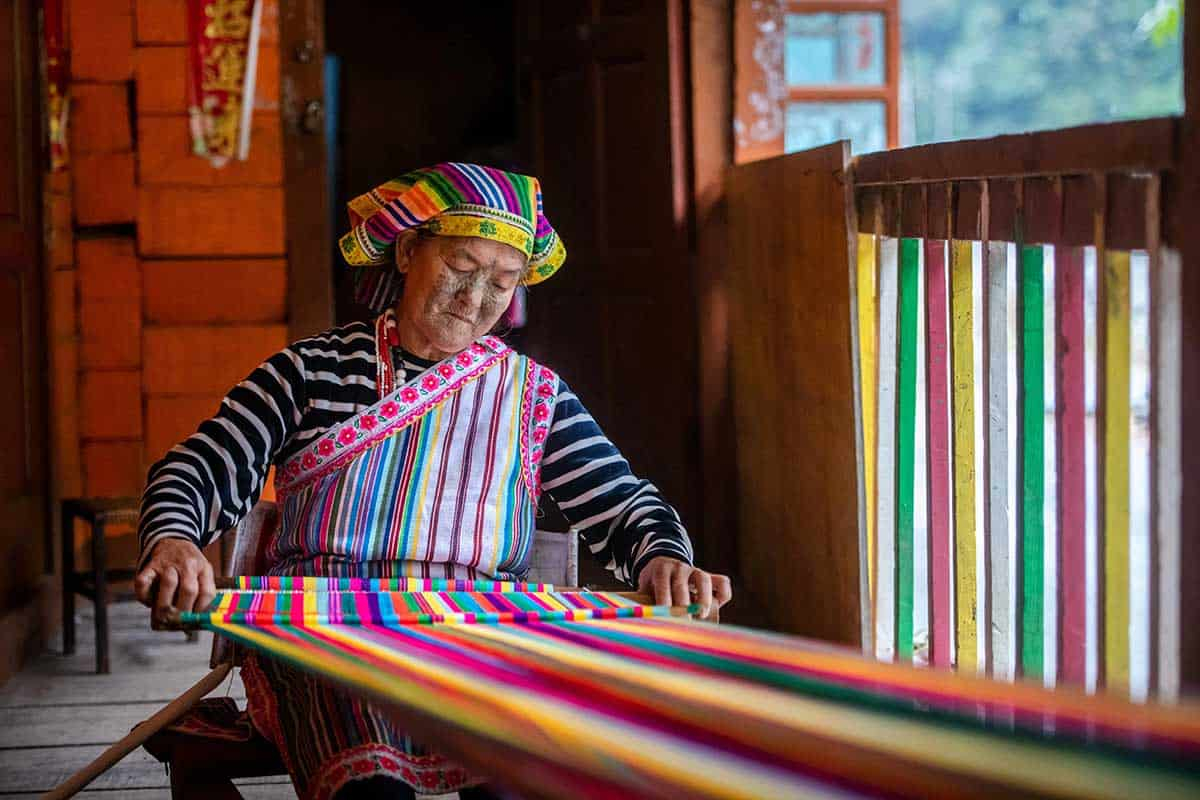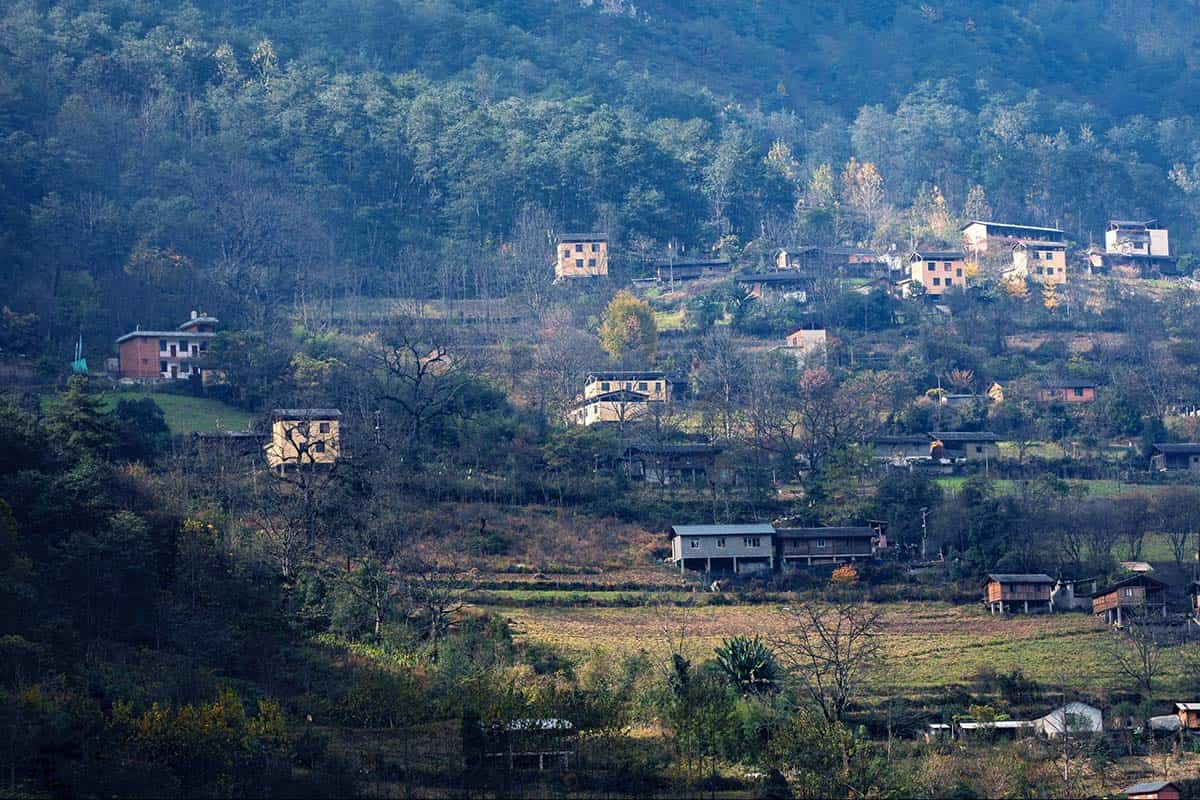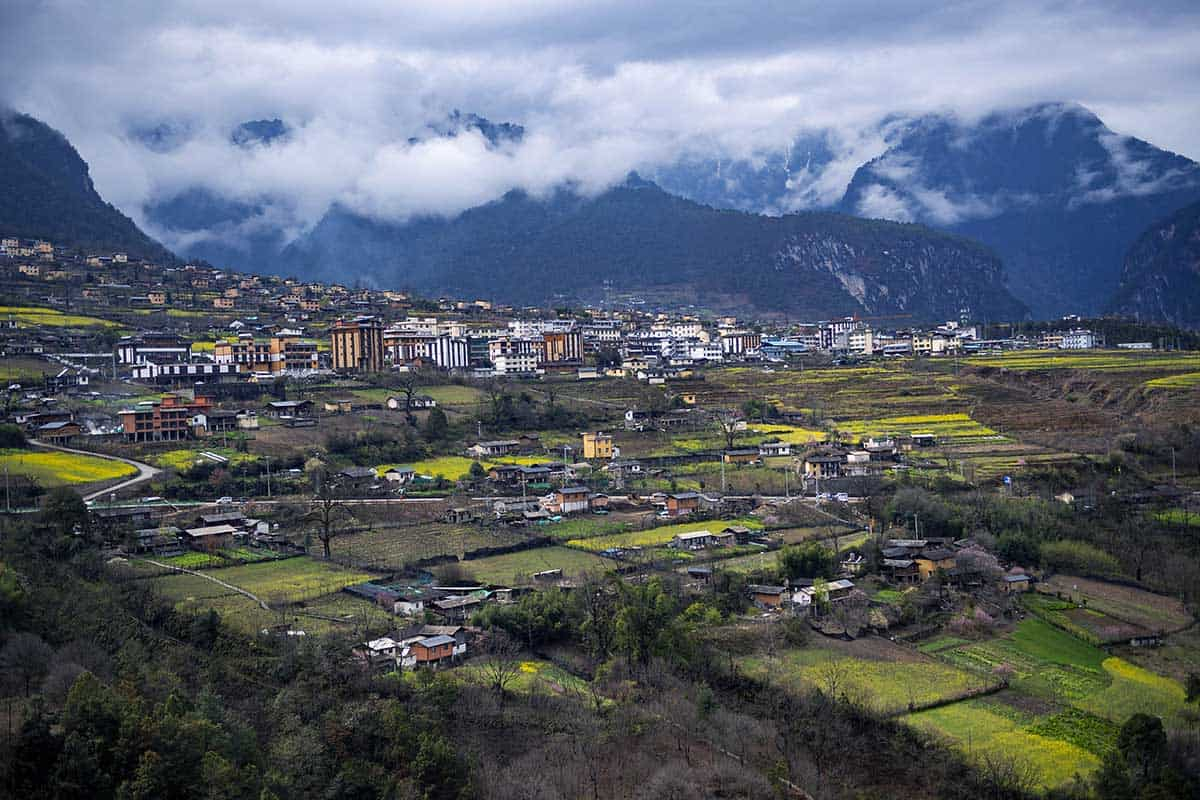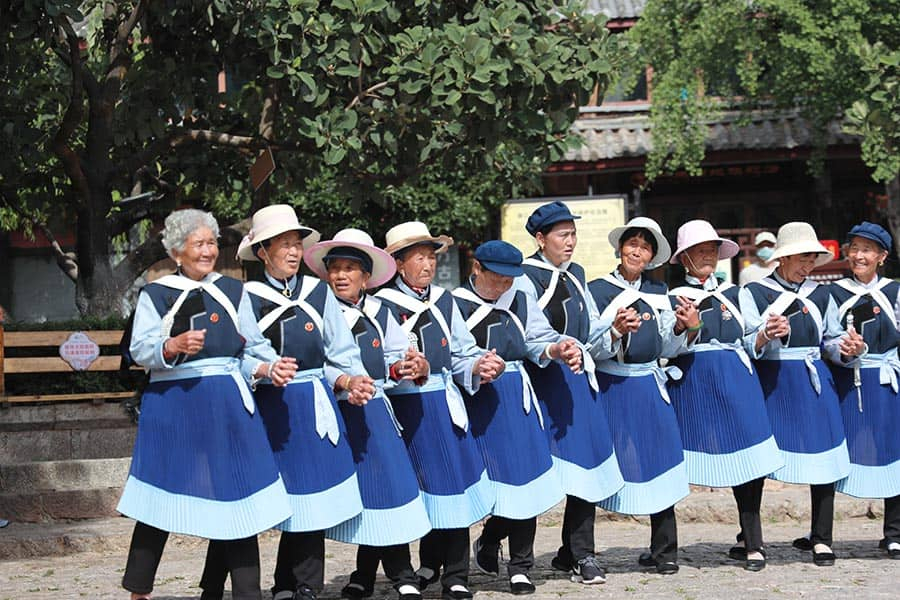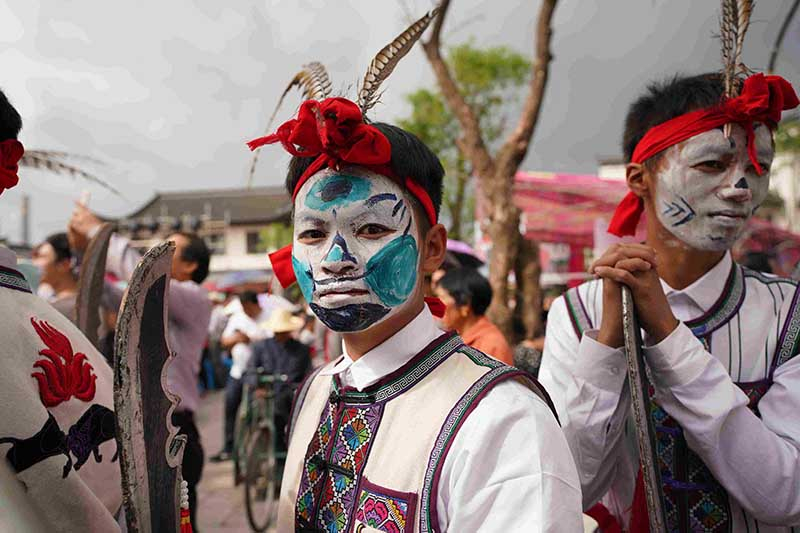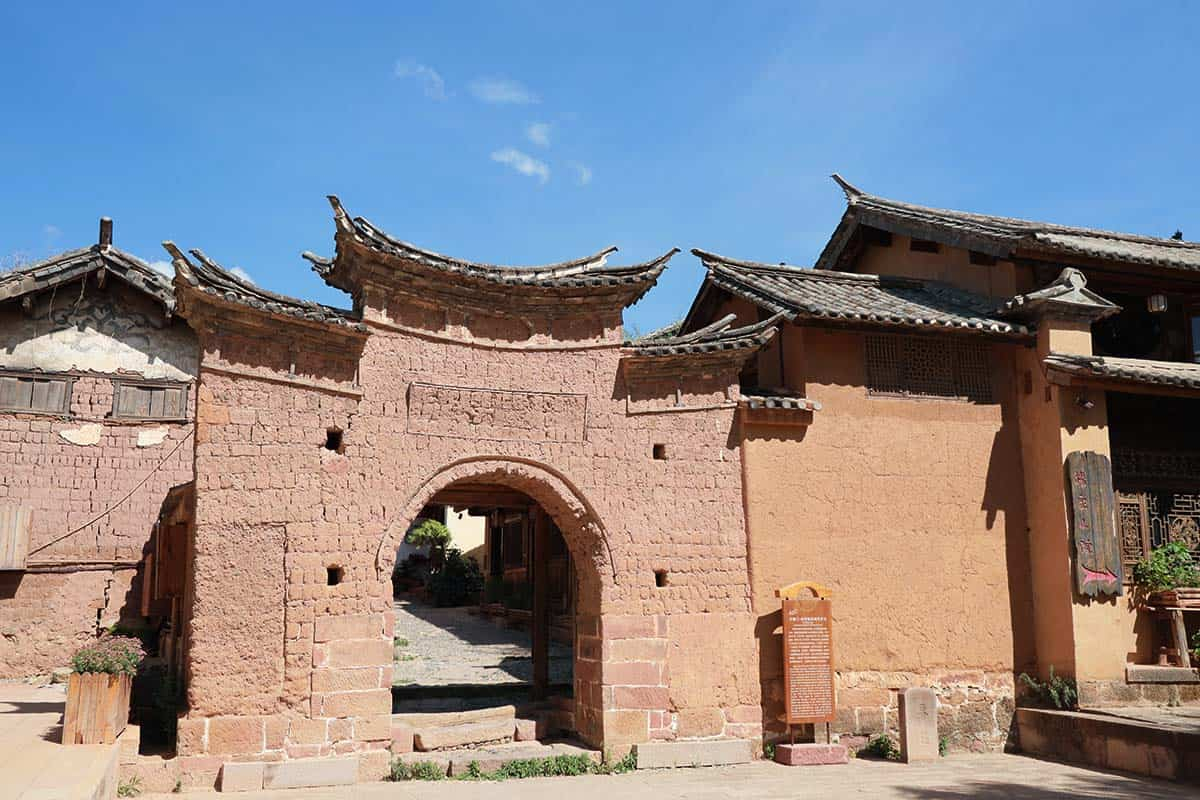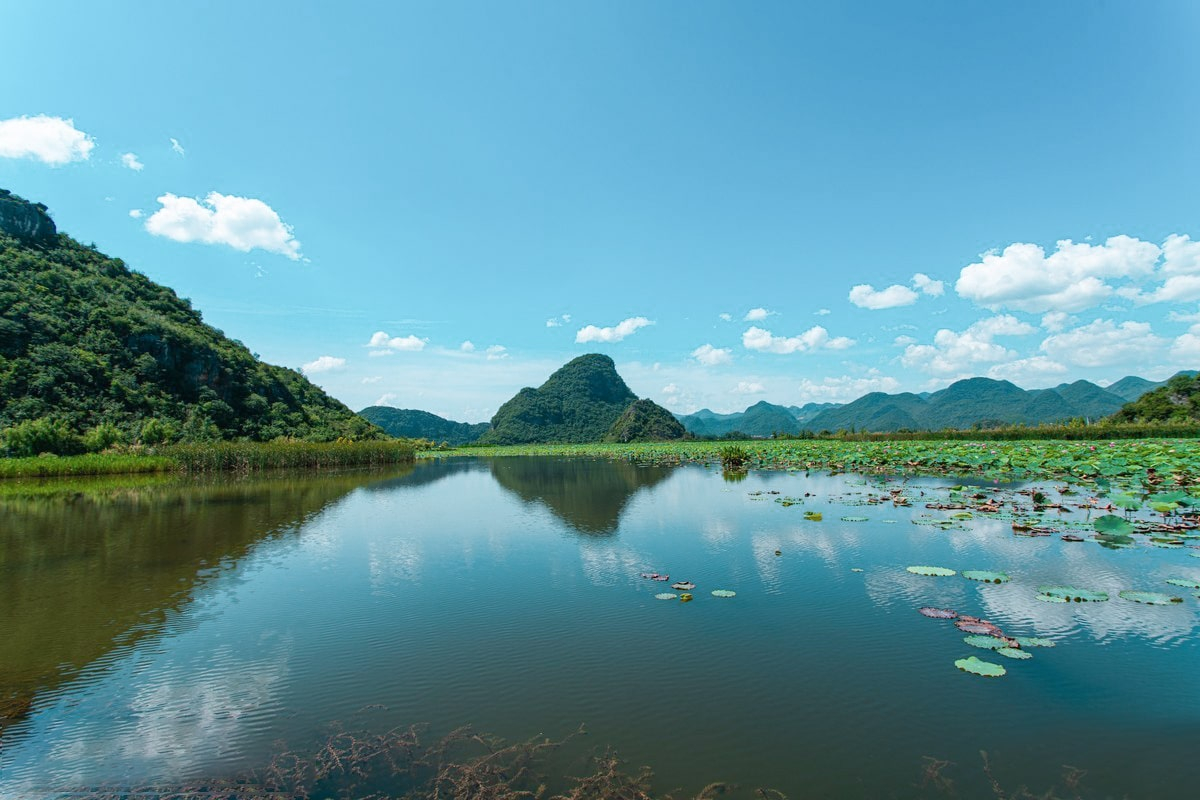Bingzhongluo, A place where humans and gods coexist in Yunnan Nujiang
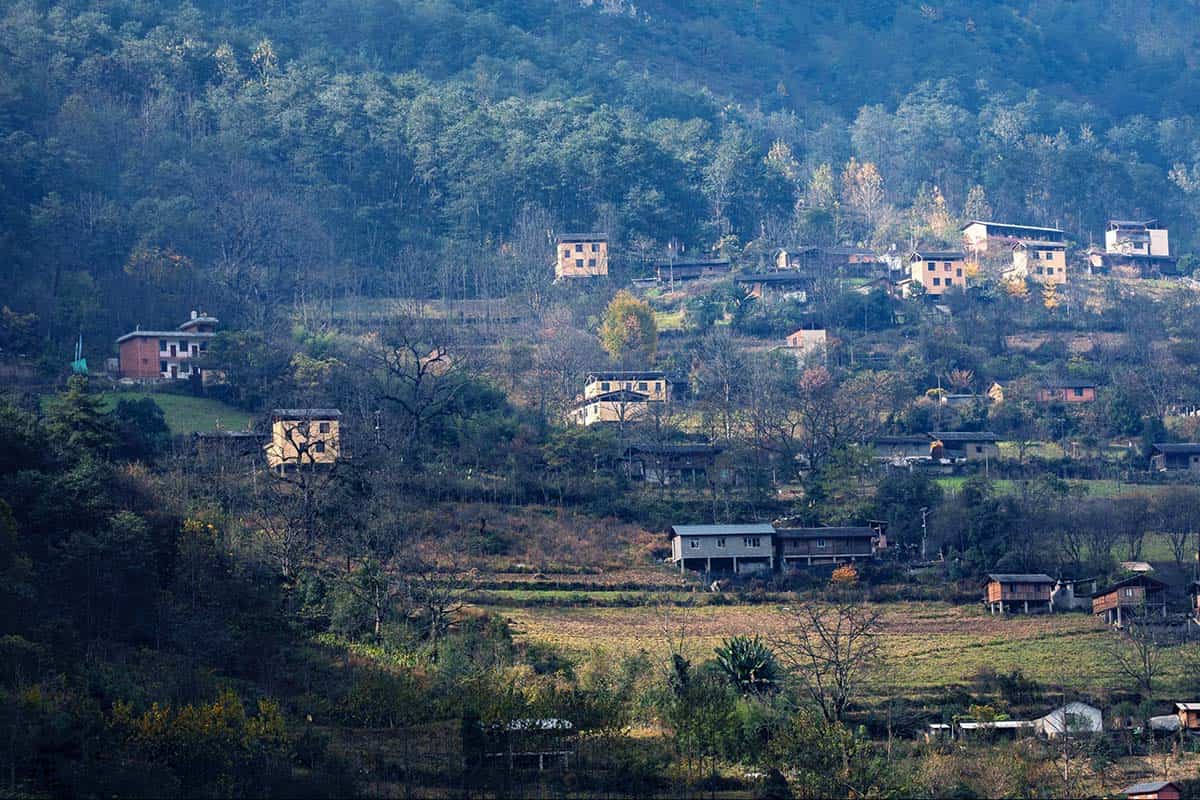
Bingzhongluo is located to the north of the Gongshan County on the juncture between China, Myanmar, and India, and between Yunnan and Tibet.
There is the Xianglanglaka Mountain and the Biluo Snow Mountain at an elevation of over 5000m to its east; the Gaoligong Mountain extending from the Himalayas to the west; Shimen Pass to the north and Gongdang Shore and Ridang Slope to the south. It is entitled “the co-existing place of Man and God” because of the even terrain, the terraced fields in clouds, and the Nujiang River and its numerous branches.
● Highlights of Bingzhongluo
First Bend of the Nujiang River
The 1,540 m long Nujiang River originates from Naqu area in Tibet. It flows through the boundary mountains between Yunnan and Tibet and surges in the Great Nujiang Canyon between the Gaoligong Mountains and the Biluo snowy mountains. When the river passes the Ridan Village of Bingzhongluo, it is blocked by the Wangqing cliff and changes its cause from southward to westward. But it has to return eastward again due to the barrier of the steep slope of the Danla Mountain, forming a gigantic semicircle, called “Huo Jia” by the Lisus and then generally called “the First Bend of the Nujiang River”. The elevation of the water surface is higher than 1,700 meters above sea level, creating beautiful sceneries of great momentum, enchantment, and gentle flow.
Shimen Pass
Shimen pass or Shimenguan of Nujiang River is located in Bingzhongluo Town, Gongshan County, Nujiang Prefecture, Yunnan Province. It is a necessary passage between the north of Nujiang River and the ancient tea horse road in Tibet. Biluo snow mountain is on the left and Gaoligong Mountain is on the right. The Nujiang River gushes out of Shimen pass and pours down. Shimen pass is magnificent and magnificent.
Qiunatong Village
The last part of the village’s name "tong" means peace to the Nu ethnic group dwelling there. Located at the northernmost end of the Nujiang River, and nestled among dense primitive forests and a multitude of waterfalls, it is regarded as the essence of the whole Nujiang valley.
Qunatong Village is not only ethnic diversity and inclusiveness, but also religion is extremely diverse. Tibetan Buddhism and Catholicism can be seen in small villages. The three religions of Christianity coexist and are very harmonious with each other.
Wuli Village
Wuli Village in Gongshan County is located by the Nujiang River. There are more than 60 households, with people from ethnic groups Tibetan, Nu and Lisu. Wuli Village is a stop on the ancient Tea Horse Road, the only way to Tibet along the Nujiang. The one-meter ancient road retains its original style.
On the Nujiang River, an old wooden bridge called "Chaohong Bridge" has been damaged. It was replaced by a new iron bridge connecting Wuli Village and the Ancient Tea Horse Road.
- HOTEST
- RECOMMEND
